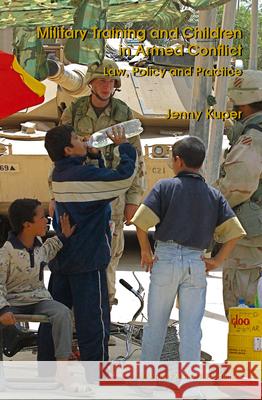Military Training and Children in Armed Conflict: Law, Policy and Practice » książka
Military Training and Children in Armed Conflict: Law, Policy and Practice
ISBN-13: 9789004136731 / Angielski / Twarda / 2005 / 299 str.
During recent armed conflicts - such as those in Iraq, the former Yugoslavia, and Rwanda - public attention was repeatedly caught by images of children, both as civilians and as soldiers. Those conflicts, like so many others, were vivid reminders that where there is armed conflict there are also, almost always, children. Soldiers and officers fulfil many roles in relation to such children - sometimes as combatants, sometimes as humanitarian workers, sometimes as protectors, and/or sometimes as enemies and abusers. This book aims to address three main questions: what are the obligations of officers of national armed forces in relation to children, either civilians or combatants, whom they or those under their command may encounter while participating in situations of armed conflict? How realistic and achievable are these obligations? How can compliance with them be encouraged, monitored, and/or enforced? The book examines these questions in the context of military training. In doing so, it has another inextricably linked aim: to see if there are ways in which the training of officers can improve the protection of children in armed conflict situations, in accordance with international law and policy. It is intended for use particularly by those involved in training of national armed forces, including officers themselves, and members of governments, non-governmental organisations (NGOs) and inter-governmental organisations. It is hoped that it will also be of interest to lawyers, academics and others concerned with 'child rights' and related law and policy. It contains examples of actual training materials that can be modified for use in different countries and contexts.











